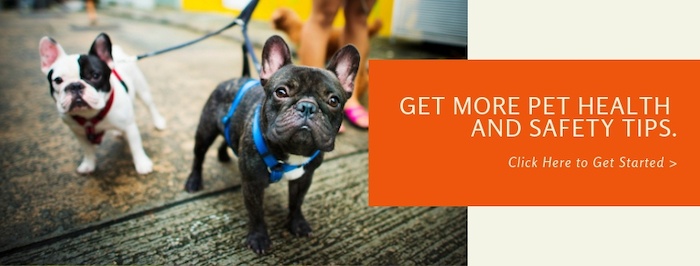A trip to the vet for the first time with your new pet can sometimes feel overwhelming, especially when you don’t know what to expect. However, it’s an imperative step in making your new pet happy and healthy. In fact, your veterinarian is going to be an important part of your pet’s life for a long time!
But when and how often should you go? How do you prepare? What does the visit entail? Keep reading to find out the answers to these, and other questions, you may have in mind.
Make the First Visit a Priority
The sooner you and your pet develop a relationship with a veterinarian the better. As mentioned earlier, the vet will be an important part of your pet’s life, ensuring they are in the best of health over the course of many years. Because of this, it’s a good idea to get that first visit scheduled within the first few weeks of bringing your pet home. Doing so will get you started down the path of a good preventative health routine.
If you don’t already have a vet, ask friends and family for their advice. If you adopted your pet from a shelter, ask if they have a vet they can recommend.
Preparing for Your First Visit
Being prepared before your first visit to the veterinarian can make all the difference. In addition to a stool sample, which is often required, the best thing you can bring your vet is information. Since it can be easy to forget certain things, consider writing down any questions or concerns you may have prior to your pet's appointment.
It’s also a good idea to jot down basic information, such as the food you have been feeding your pet along with the quantities.
If your pet has been exhibiting symptoms that worry you, make a list of those as well. Whatever notes you’re taking to share, do your best to be specific. The more information you have gathered, the easier it will be for the vet to get to the heart of the matter.
What Happens During the Exam
Initial pet exams are fairly similar, however, they may vary based upon certain factors. In most cases, though, you can expect the vet to:
- Weigh your pet
- Listen to heart and lungs
- Check inside the mouth to exam teeth, tongue, and roof of mouth
- Take a rectal temperature
- Examine skin and coat
- Examine eyes, ears, nose, feet, and genitalia
- Test muscles and joints for mobility
- Palpate abdomen and lymph nodes for abnormalities
- Examine feces for the presence of worms
- Administer a blood test
- Go over your pet’s history and address any questions you might have about feeding, medical issues, and future care, such as vaccinations, microchipping, and spaying or neutering
If you have reason to think that your cat or dog maybe nervous, it would be good to bring a comfort-item, such a blanket or a toy, with you for your first veterinarian visit.
What to Ask Your Veterinarian
If you are new to this particular veterinarian, it’s important that you gather as much information about them and their facility so you can be prepared for any scenario that may arise. Some questions you might consider asking could include:
- What are the capabilities of your office? Are they able to perform x-rays? Surgeries?
- Do you offer after-hours or weekend emergency care? If not, where should you take your pet?
- Are there certain pests and parasites in your area that could put your pet at risk? If so, what preventative measures can be taken to keep your pet safe?
- Should I consider pet insurance?
- What are the best foods for my pet?
- Are there certain vaccinations my pet needs?
- Should I microchip my pet? What are the pros and cons of doing so?
- Do you recommend certain grooming procedures for my dog or cat?
Your veterinarian is an excellent resource for information that can help you raise a pet that is both happy and healthy. Be sure to speak up and talk with him or her about any questions or concerns you may have. The more you know about your pet, the better equipped you’ll be to take care of them. Remember: a healthy pet is a happy pet!







